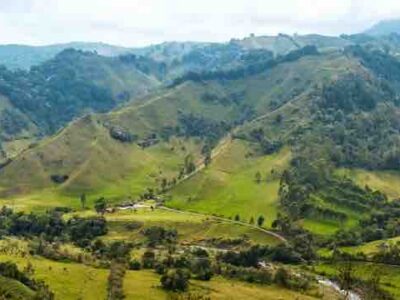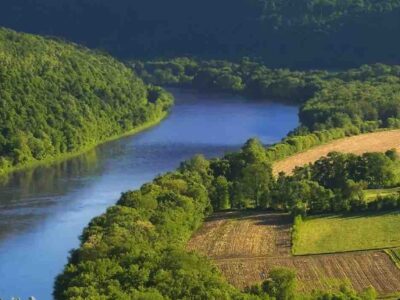When you think of Spain, the stunning urban landscapes of Madrid and Barcelona are probably the first things that come to mind. Breathtaking as they are, there is just as much natural beauty deep in the countryside of Spain. Recently, European wildlife advocacy groups have embarked on rewilding the Iberian highlands. As human populations drift closer to cities, a new influx of lynxes, wild horses, and vultures are reclaiming their old habitats.
The Iberian Mountains are some of the least populated areas of Europe. Since the 1950s, land abandonment has allowed for creatures like wild boar, deer, ibex, and different vultures to establish homes in these highlands. However, a lack of natural predators concerns biologists.
Rewilding Europe will reintroduce Iberian lynxes to the area to counter these effects, along with black vultures to act as predators for the herbivore population and scavengers as the cleanup crew.
The nonprofit will carry out the long-term project, with the introduction of the first three lynxes set for next year. The first birds were released in September 2022, and 15 more will follow yearly. They will join various raptors nesting in the highlands.
Rewilding Europe has extensively promoted wildlife conservation and habitat restoration across the continent. Along with this Spanish campaign, it has helped return bears to the Central Apennines mountain range in Italy, wildcats in Scotland’s Highlands, and various other parts of Europe.
The firm’s mission is to help restore wildlife populations while teaching humans how to coexist peacefully with animals. Iberian project director Pablo Schapira describes this as a way to “achieve a network of well-connected natural and semi-natural core areas with functional ecosystems and a matrix of multifunctional landscapes that benefit both nature … and humans.”
The lynx introduction is the most significant part of the Spanish project. In the early 2000s, they were critically endangered, with fewer than 100 animals. After widespread protection programs, the populations are now back up into the 1,000 range. Despite their natural food source, rabbits, being more scarce, the wildcats will still be able to feast on the boar, red deer, and roe.
Scientists are thrilled to see the animal returning to the area after almost being wiped out by starvation caused by the decline in rabbit populations. Spanish biologist Gabriel Llorens Folgado hails the recovery as “a miracle.”
Wild horses are also being introduced as natural grazers to mitigate the overgrowth of mountain steppe areas. With a shrinking agricultural presence in this region, the horses will take over as the lawnmowers of these open fields.
In turn, native trees will grow without invasive species stunting their growth. More trees mean more acorns, which feed local sandgrouse, little bustard, and great bustard bird populations. The horses will combat the density of shrubs that would’ve blocked sunlight from reaching saplings while reducing the impact of potential wildfires.
So far, Rewilding Europe has introduced 11 semi-wild horses to the highlands, with the first wild foal being born in July. More releases are expected to follow.
The Iberian rewilding initiative also has economic benefits. Being only a two-hour drive from Madrid and two-and-a-half hours from Valencia, the goal is to drive more ecotourism from local populations and international tourists. More native wildlife will help significantly in this regard.
The mountains might be picturesque, but having legitimate wildlife populations running around in the open will significantly increase tourist numbers. It will also help boost the economy of this sparsely-populated area and offer a new industry outside of mining, forestry, or hunting.
“These cities have a lot of people who are looking for special places to see nature, so the tourist potential of this area is huge,” Schapira said.





